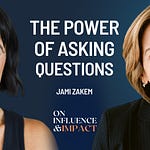What does it take to earn trust? How do you rebuild it once it’s broken? And how can trust be leveraged across teams, cultures, and organizations to create impact?
These are the questions I explored in my conversation with Mariano Fiscella.
Mariano is a distinguished executive, industrial engineer, and global business leader originally from Argentina. With a career spanning multiple industries and regions, he has built a reputation for leading large-scale operations, driving digital transformation, and optimizing customer experience. Currently, Mariano leads Uber’s Customer Operations for the U.S. and Canada focusing on enhancing customer experience through AI, automation, and operational excellence. You can read his full bio below.
What sits at the heart of his leadership philosophy is trust.
Trust, he says, is not just a nice-to-have; it is the foundation of everything. It fuels collaboration, unlocks potential, and creates the conditions for teams to thrive—even in uncertain and high-pressure environments.
I encourage you to watch or listen to the full episode but in the post below, I share the biggest takeaways from our discussion.
Let’s dive in.
Trust is the entry point for everything else
Early in our conversation, Mariano made it clear: without trust, nothing else works.
“If you get trust right, I think you can solve any problem you want.”
Trust isn’t a byproduct of success—it’s the foundation. Without trust, strategy doesn’t stick. Decisions don’t hold. Teams don’t feel safe enough to take risks or move quickly.
When people trust their leader, they willingly align their efforts, knowing they are valued, understood, and supported. And that trust goes both ways: a leader must trust their team in return, giving them autonomy and the confidence to execute on shared goals.
But trust is not just about competency—it’s also about care. It’s about believing that your leader genuinely has your best interests at heart.
“People will trust you in a business setting, not just because they believe in your abilities, but because they trust that you’re making decisions with their best interests in mind.”
This balance—authenticity, care, and strategic acumen—creates a leader who can move teams forward with conviction and alignment.
How trust fuels influence and collaboration
Trust is especially critical in large organizations where leaders must operate cross-functionally—gaining buy-in, aligning teams, and driving execution across different business units.
Mariano described trust as a key to unlocking influence:
“Influencing another team or function is like getting the keys to their house. If they don’t trust you, that door remains closed.”
If a leader or team lacks trust, people will instinctively resist their ideas—not because they’re bad ideas, but because trust hasn’t been established. The ability to co-create solutions, rather than impose them, is what separates the most effective cross-functional leaders.
Mistakes that break trust (and how to repair it)
Mariano, like any leader, has made his fair share of trust missteps—and he was candid about what he learned.
One story stood out. Early in his career, he stepped into a new leadership role at a time when his team was already experiencing change fatigue. Excited about the opportunity, he came in with a strong vision and clear expectations—ready to move fast.
But he overlooked something critical: the emotional side of change.
“I thought my strategy would be enough. I assumed that if I had a strong enough plan, trust would follow. But I didn’t realize that trust wasn’t moving at the same speed.”
The result? Resistance. Not outright rejection—but hesitation, skepticism, and slow adoption. The team wasn’t pushing back on his ideas; they just weren’t fully bought in. And without that buy-in, the full potential of his leadership couldn’t be realized.
So what did he takeaway? Listen before you lead.
“Now, I try to listen first. Instead of jumping into a new role with all the answers, I spend more time understanding the team’s context, concerns, and motivations. Then, I build from there.”
For leaders stepping into new roles or organizations, Mariano’s advice is to earn trust before you expect results.
The “Advice Monster” that hurts leadership
One of my favorite moments from our conversation was when Mariano introduced the idea of the “Advice Monster”—that impulse many leaders have to immediately jump in with solutions.
“I have an Advice Monster—the part of me that wants to solve problems quickly and share my perspective. But I’ve learned that if I speak too soon, I close off better ideas before they even surface.”
Instead of rushing to provide answers, he now challenges himself to stay curious longer. He actively asks more questions before offering advice, ensuring his team has the space to think, contribute, and own their solutions.
This shift in approach has strengthened his teams and built deeper trust. It’s a simple but profound takeaway for any leader: delay your confidence—stay open longer.
Trust across cultures: what changes and what stays the same
Having led teams across North America, Latin America, and Europe, Mariano has seen firsthand how trust varies across cultures.
One of the biggest distinctions? The role of hierarchy.
“In some cultures, hierarchy is deeply respected. People expect strong, decisive leadership. In others, leadership is expected to be collaborative, and hierarchy means little. A leader needs to adjust their style accordingly.”
Another key difference? How teams balance the past, present, and future. Some cultures emphasize where the organization has been, while others focus exclusively on what’s next.
For global leaders, understanding these nuances is critical to earning trust across geographies. The key is adapting leadership style without compromising authenticity.
How to rebuild trust when it’s broken
One of the hardest leadership challenges is regaining trust after it’s been lost.
Mariano’s formula is as follows: Own it. Understand the impact. Overcorrect with action.
“Trust isn’t rebuilt with words—it’s rebuilt through actions that prove the mistake won’t be repeated.”
This means:
• Full ownership: No excuses. No justifications. Just clear, direct acknowledgment of what happened.
• Acknowledging the emotional impact: Leadership isn’t just about what went wrong—it’s about how it made people feel.
• Visible correction: Making tangible changes to prevent the issue from happening again.
If leaders take these steps, trust can be repaired. But it takes time, consistency, and humility.
Build trust as a leadership habit
As we wrapped up, I asked Mariano for his one best piece of leadership advice. His answer was simple but powerful:
“Ask for feedback often, and act on it visibly.”
Leaders who actively seek feedback—not just once a year, but continuously—signal openness and a commitment to improvement. And when that feedback is acted upon, trust deepens.
The best teams don’t assume trust is a one-time achievement—they see it as a habit to nurture over time.
Mariano reinforced one of the most important truths in leadership: Trust is everything.
It fuels collaboration, accelerates performance, and enables influence across teams and cultures. It can take years to build and seconds to break—but when cultivated intentionally, it becomes an unshakable foundation for leadership success.
So whether you’re leading a small startup or a global organization:
Listen first.
Stay curious longer.
Build trust deliberately.
And in doing so, you’ll unlock the full potential of your team.
If you found this episode valuable, share On Influence & Impact with others. We’re building a space for real conversations about leadership, and I’m excited to grow this community with you.
Let’s keep the conversation going!
— Amanda
In case you missed it
Lattice CEO Sarah Franklin on Courageous Leadership
Sarah Franklin shares her experience on breaking the mold and moving beyond traditional leadership styles.
Glassdoor CEO Christian Sutherland-Wong: From Achievement To Connection, Vulnerability, Trust, & Community
Christian Sutherland-Wong highlights his leadership journey, shifts in perspective, and the key to building high-performing teams.
Interested in exploring my executive coaching practice?
I work with Founders & C-Suite executives on three key levels:
Strategic: I help you gain clarity, decisiveness, and new pathways of thinking to address the strategic challenges of the business.
Leadership: I enable you to evolve and scale your leadership capabilities in line with what the business needs.
Inner Work: I guide you through the inner work that allows you to truly thrive as a human being.
I offer a complimentary discovery session to assess fit. I’d love to hear from you.
Chapters
00:00 Introduction and Welcome
00:36 The Importance of Trust in Leadership
01:33 Defining Trust and Its Role in Business
04:18 Building Trust Through Authenticity and Care
05:08 Influence and Cross-Functional Trust
07:45 Learning from Mistakes and Repairing Trust
16:07 Strategies for New Leaders to Build Trust
26:23 Cultural Differences in Trust
29:20 Final Thoughts and Key Takeaways
Mariano Fiscella
Before joining Uber, Mariano served as VP and General Manager of Walmart Supercenter and Walmart Express in Mexico, overseeing one of the largest retail operations in Latin America. In this role, he led strategic initiatives that transformed both digital and in-store experiences, managing a workforce of over 55,000 employees. Prior to that, as VP and COO of Sam’s Club Mexico, he spearheaded critical advancements in operations, technology, and customer engagement.
Before joining Walmart, Mariano amassed 10 years of experience between Unilever and PepsiCo, where he held leadership roles in logistics, manufacturing, and strategic planning. His time at Unilever honed his expertise in supply chain optimization, operational efficiency, and large-scale production management, providing a strong foundation for his later executive roles.
Mariano holds a degree in Industrial Engineering from the Universidad Nacional de Rosario and later earned an MBA from Universidad Torcuato Di Tella in Buenos Aires. Further strengthening his leadership acumen, he completed an Advanced Leadership Program at Harvard Business School.
With leadership experience across Argentina, Brazil, Chile, Mexico, and the United States, Mariano brings a global perspective on scaling businesses, optimizing operations, and navigating change in complex environments. Beyond his corporate career, he is a passionate long-distance runner, frequently competing in marathons and ultramarathons.


















Share this post